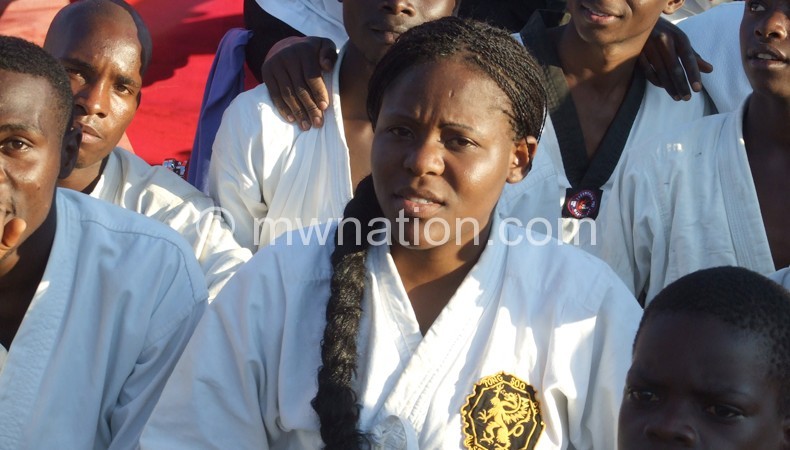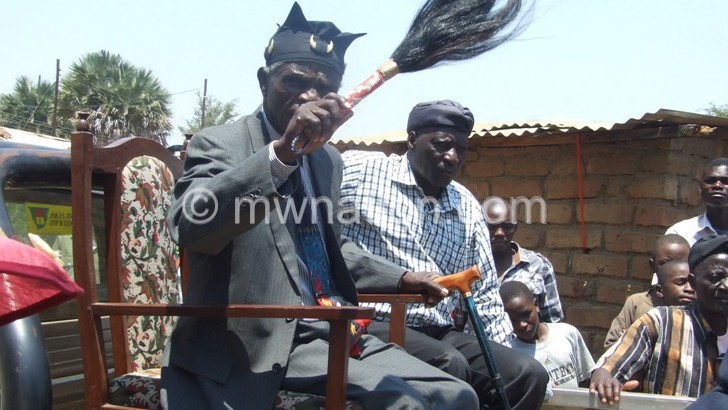Timveni fiesta confirms gender disparities in arts
On a sunny Saturday afternoon, Plan Malawi’s Timveni TV convened nearly 3 000 boys and girls at Mzuzu Shoprite Complex in a multidisciplinary arts show envisaged to encourage children to remain in school and nurture their talents to the fullest.
However, the talent-unearthing show—happening under the banner of 18+ and Because I’m a Girl, the international child rights organisation’s flagship campaigns against teen pregnancies and early marriage—spectacularly unreeled how performing arts continue to be dominated by male players, a no-go zone for girls and women.

Not that the situation is new or what mattered most. It was not startling either. Yet it was revealing at a new low, a childhood stage which could be symptomatic of deepening gender disparities that have long been discussed at eye-level.
A mix of music, poetry and dance is no stage for tallying female artists who have filled the void left by Ethel Kamwendo-Banda in secular arts nor those who have followed her across the divide to the gospel side where most girls and women seem to feel at home. Neither is it time to recount a multiplicity of factors that might have landed Alleluya sensation Mireilla Nkhoma into a trap of teen pregnancies at age 17, just when her talent was beginning to shine.
This was just about children having fun, exploiting their various talents to show just why even girls aged under 18 are no marriage material, but safer in school.
“Organised by Timveni TV, the entertainment show aims to bring together the youth, give them a stage to show their talent and encourage each other to remain in school. Most awareness campaigns happen in rural areas, but urban girls also marry under age 18,” said Plan Malawi area programme manager Esther Chirwa in an interview.
But in the end, the gender gaps were stark and telling. Out of 25 acts, both solo and group-based, only 15 girls rose to the stage to add their voice to the lobby. The few female voices included a nine-year-old dancer who did not want to be named because “my dad forbids”, an all-female Lunyangwa Primary School singers, four in a nine-strong Katoto Secondary School dancing group and the long acrobat in Masasa-based Taikwendo set. Actually, the second-placed Taekwendo Group’s Helen Chirwa was the only female face on stage when the judges named the top-three.
A disconcerting tale of gender mismatches it was, but nothing surprising to rapper-cum-radio personality Rina who sat on the judges’ bench alongside David Kalilani that rare sunny afternoon.
“It’s not surprising because we had fewer girls during Lilongwe leg in May, but we can do better if we are really about bridging the gender gaps in the creative sector,” says Rina.
The versatile diva belongs to a countable few female musicians on the secular scene who include veteran Maria Chidzanja-Nkhoma and Wendy Harawa. She called for concerted efforts to encourage girls to express themselves freely in public and overcome deep-rooted fear of the unknown as well as low self esteem which pushes girls to seek refuge in keeping silent or singing gospel.
As a matter of fact, gospel music has become a saturation of female voices—but Rina confesses being determined to stay put on the ‘male’ side where many girls and women are adjudged loose or promiscuous for unleashing their imaginative potential.
“I have never contemplated joining gospel music. I like competition. Going gospel is almost giving in to stereotypes that push us to go underground. I like tough things that make me grow,” says Rina, who opened the show with an energetic end-to-end performance.
For activists like Chirwa, some of these disparities begin at home—where parents let boys a free to become what they want while restricting girls to marriage-related chores, including cooking as well as bearing and raising babies.
“Culturally, girls often grow up being prepared for marriage. When they marry before 18, they lose their potential and talent,” decries the Plan official.
Last year, Marrying Too Early, a study by the United Nations, indicated that one out of two women aged 20-24 married before age 18.
Overcoming cultural stereotypes that hold girls as brides and encouraging us to remain school is part of bridging the gap.
“Unless we delay marriages and pregnancies, girls will continue losing their talent needlessly,” says the younger Chirwa, the Mzuzu Technical Education ICT learner whose acrobatics’ outfit won two Sunbird Mzuzu lunch vouchers.
The first-prize winner was Balotteli (born Emmanuel Mtambo eight years ago), Mchengautuwa Primary pupil and dance whiz kid whose dance moves won hearts of the entire crowd and K100 000. Emerging rapper John Nkhata was voted third and went home with a Timveni TV decoder.





